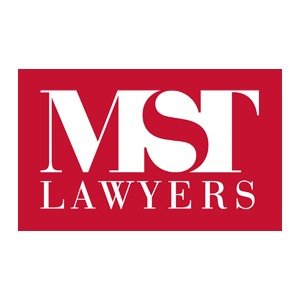Best Employment Rights Lawyers in Mount Waverley
Share your needs with us, get contacted by law firms.
Free. Takes 2 min.
List of the best lawyers in Mount Waverley, Australia
About Employment Rights Law in Mount Waverley, Australia
In Mount Waverley, Australia, employment rights are safeguarded through a combination of federal and state laws. Employment rights encapsulate various aspects from workplace safety, discrimination, and bullying, to unfair dismissal, pay, and employment conditions. The Fair Work Act 2009 is the predominant federal legislation that covers a broad range of employment issues. However, certain aspects of employment rights, like occupational health and safety, and workers' compensation, are generally covered by state legislation in Victoria, such as the Occupational Health and Safety Act 2004.
Why You May Need a Lawyer
Employment law can be complex and navigating your rights within the workplace can be difficult. You may need an employment rights lawyer in situations such as disputes regarding unfair dismissal, workplace discrimination, wage and hour disputes, workplace harassment or bullying, and issues with employment contracts. A lawyer could provide proper advice, guide you through the legal process, assist in negotiations, or represent you at a workplace tribunal or in court.
Local Laws Overview
The key employment laws relevant to Mount Waverley are the Fair Work Act 2009 (Cth) and the Occupational Health and Safety Act 2004 (VIC). Except for certain categories, the Fair Work Act 2009 applies to all employees in Victoria. It covers issues like minimum working conditions, unfair dismissal, industrial action, compliance and enforcement. Furthermore, the Occupational Health and Safety Act 2004 governs workplace safety regulations to ensure that undertakings by employers do not endanger the health, safety, and welfare of employees and other persons at work.
Frequently Asked Questions
What are the minimum employment conditions in Victoria?
The Fair Work Act 2009 outlines 10 National Employment Standards (NES) that set the baseline for full-time, part-time, and some casual employees. These include maximum weekly hours, requests for flexible working arrangements, leave entitlements, public holidays, notice of termination and redundancy pay, among others.
Is unfair dismissal applicable in all cases?
No, unfair dismissal laws do not extend to all employees. Certain conditions such as a minimum period of employment and the size and annual turnover of the employer entity can affect your eligibility to apply for unfair dismissal.
What constitutes workplace discrimination?
Workplace discrimination occurs when an employer takes adverse action against an employee based on certain attributes such as race, colour, sex, sexual orientation, age, physical or mental disability, marital status, family or carer’s responsibilities, pregnancy, religion, or political opinion.
What is the process if I face workplace harassment or bullying?
If you believe you are a victim of bullying or harassment in the workplace, you should first report it to your managers or human resources department. If the situation persists, you can take your claim to the Fair Work Commission.
Can I be made to work on a public holiday?
Under the NES, whether you can be asked to work on a public holiday depends on the terms of your award or agreement. As an employee, you have a right to refuse a request to work on a public holiday under reasonable circumstances.
Additional Resources
Some helpful resources related to Employment Rights are the Fair Work Ombudsman, the Victorian Equal Opportunity and Human Rights Commission, and Safe Work Australia. These organizations provide guidance on different aspects of employment rights and can offer assistance in understanding your rights and obligations.
Next Steps
If you believe your employment rights have been violated or if you are facing issues you cannot resolve with your employer, consider seeking legal assistance. Start by gathering all related documents and evidence related to your issue. Then, contact a lawyer specialising in employment rights who can guide you through the legal process based on your specific situation.
Lawzana helps you find the best lawyers and law firms in Mount Waverley through a curated and pre-screened list of qualified legal professionals. Our platform offers rankings and detailed profiles of attorneys and law firms, allowing you to compare based on practice areas, including Employment Rights, experience, and client feedback.
Each profile includes a description of the firm's areas of practice, client reviews, team members and partners, year of establishment, spoken languages, office locations, contact information, social media presence, and any published articles or resources. Most firms on our platform speak English and are experienced in both local and international legal matters.
Get a quote from top-rated law firms in Mount Waverley, Australia — quickly, securely, and without unnecessary hassle.
Disclaimer:
The information provided on this page is for general informational purposes only and does not constitute legal advice. While we strive to ensure the accuracy and relevance of the content, legal information may change over time, and interpretations of the law can vary. You should always consult with a qualified legal professional for advice specific to your situation.
We disclaim all liability for actions taken or not taken based on the content of this page. If you believe any information is incorrect or outdated, please contact us, and we will review and update it where appropriate.









